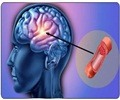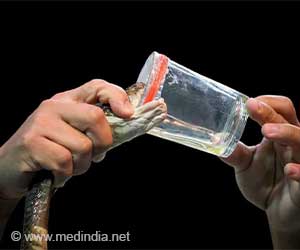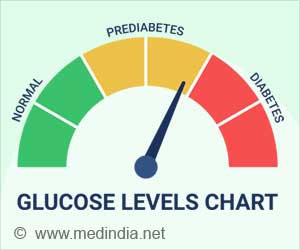Winter season causes vascular constriction and blood clotting risk that eventually elevate the risk of stroke.
- Stroke is a condition of brain cell death due to disrupted blood supply to the brain, either due to blood clots or blood vessel leakage
- Cold weather constricts blood vessels raising blood pressure and subsequently increasing the risk of blood clots and stroke //
- Stroke can be avoided in the winter by staying warm, eating a healthy diet, exercising frequently, and managing medical disorders like diabetes and hypertension
Risk of ischemic and hemorrhagic stroke in relation to cold spells in four seasons
Go to source). In addition to significant risk factors such as age and health, falling temperatures can also increase the risk of stroke.
TOP INSIGHT
Did you know? Every 40 seconds, someone in the U.S. has a stroke. Brace this winter with these stroke prevention tips. #winter #bloodclot #stroke #brainhealth #medindia
What is Stroke?
Stroke is a cerebrovascular accident that occurs when the blood supply to a part of the brain is disrupted leading to brain cell death. There are two types of stroke– Ischemic and Hemorrhagic. Ischemic stroke occurs due to a clot in the artery supplying blood to the brain and hemorrhagic stroke is caused by a leak in a blood vessel supplying the brain.The early signs of stroke are weakness, tingling sensation, slurred speech, abnormal gait, an inability to balance, and difficulty in swallowing. The final blow is the paralysis that sets in on one side of the body.
How Cold Weather Spurs the Risk of Stroke?
Regular daily tasks, such as shoveling snow off your driveway or getting out of your car in the winter, can often increase blood pressure, which is a major risk factor for stroke. Wintertime increases the risk of stroke for the following reasons:- Cold weather makes blood vessels constrict, which can raise blood pressure – a major risk factor for stroke.
- Coronary arteries like other arteries constrict during winter causing poor blood supply to the heart muscle resulting in heart attack or myocardial ischemia. This subsequently decreases the blood flow to the brain and can increase stroke risk.
- Blood tends to thicken and become stickier during extreme cold, which makes it easier to clot.
- High humidity in the atmosphere can cause dehydration, elevating the risk of blood clot formation.
Tips to Stay Warm & Prevent Stroke During Winter
Although weather is beyond our control, there are modifiable risk factors that can be reduced.The following tips are advised to prevent stroke during winter:
- To stay warm, dress in layers and keep core temperature high to maintain blood flow to extremities
- Brace your legs well with winter essentials to maintain blood circulation getting to your feet, especially when stepping outdoors
- Keep your health conditions such as high blood pressure, atrial fibrillation, type 2 diabetes, and elevated cholesterol under check
- Eat a healthy diet and engage in regular physical activity
- Limit alcohol intake
Understanding the symptoms and indicators of strokes as well as modifiable risk factors may help patients experience a less severe outcome from stroke events. This could also alter the perception of caregivers and at-risk patients to weather changes.
Disclaimer: The content on this page is meant to be an informative resource and is not meant to replace advice from a medical professional. It is always best to consult a healthcare provider with any concerns
Reference:
- Risk of ischemic and hemorrhagic stroke in relation to cold spells in four seasons - (https://pubmed.ncbi.nlm.nih.gov/36959548/)
Source-Medindia
 MEDINDIA
MEDINDIA




 Email
Email










